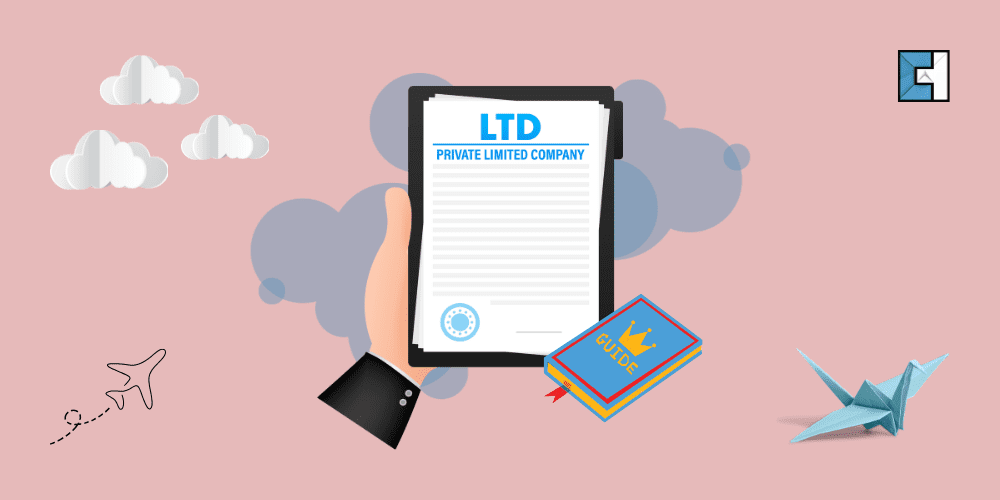A firm operates based on two bodies of people: its shareholders and the board of directors. The director’s responsibilities are key in running an institution. Shareholders are the owners of the company, while the board of directors is responsible for making strategic and operational decisions for the firm. Individual directors’ role is to contribute to board meetings to enable the board to reach its goals and ensure that the company meets its statutory obligations. Directors appointed at the time of the company’s registration are named in the INO1 form, while subsequent appointments are named on the APO1 form and governed by the company’s articles of association.
Generally, directors collaborate as the board of directors, but the articles entitle the board to delegate powers to individual directors and perform company operations.
Limited Companies must have at least one director aged 16 or above in the UK. It is important to remember that directors can also have shareholdings in the firm, and if so, they have additional rights and responsibilities to perform.
You should always consult with your Limited Company Accounting specialists before you implement any structural changes.
Director Responsibilities
A company director’s specific legal duties are defined in the Companies Act 2006. Strict penalties and fines can be charged if the director fails to perform these responsibilities.
Statutory Responsibilities
Several statutory responsibilities are required to be performed by the directors of a company. These include.
Work Within Power
As described in its constitution, directors are given specific powers and must use them in the company’s best interest. The most crucial part of this constitution is the articles of association, which include rules and regulations for the firm and board. So directors need to understand their Articles Of Association as sometimes it may restrict the director’s decision-making powers. Moreover, if, in any case, a director exceeds his power, he might have to take his related decision back along with the compensation of any financial losses that shareholders and the company have to face as a result of this misuse of power.
Most startup companies use model articles of association, but with time it can be changed according to business needs and circumstances. Therefore it is important to read the article of association for a director to have a complete understanding of his roles and responsibilities in the company.
Promote The Success
Company directors must act in a way that promotes the success of the firm. At the beginning of 2019, new reporting requirements were introduced that directors appointed in large firms with more than 250 employees will explain how they deliver this duty in the annual report.
According to the new requirements, the director is responsible for working and acting in what they believe is in good faith of a company and will add to a company’s success.
Moreover, a director must understand the consequences of their decisions in relation to its stakeholders, including customers, employees, suppliers, shareholders (even shareholders with the least shares in a company), community, and more. The decision must also positively impact the environmental, social, and economic performance of a company and its reputation.
It may seem like a simple responsibility, but it holds significant importance as a director, unlike other shareholders and board members, must act with a flexible and broad mindset when evaluating these decisions and their impact on the company and other stakeholders well being rather than having a narrow financial perspective.
Exercise Independent Judgment
The third central duty of directors is to exercise independent judgment when making decisions. They shouldn’t implement the commands given by other parties, such as significant shareholders, nor rely on their knowledge or judgments by avoiding the responsibility of having an individual and informed view of the company while making decisions.
Though directors can seek professional advice, they need to exercise their independent judgment and well-informed view, which may require some effort and time, especially if a director is not familiar with the company’s key activities.
Exercise Reasonable Care, Skill, And Diligence
Another responsibility of the director is to exercise reasonable skill, care, and diligence. Directors were appointed because of their name and reputation back in the day, but now the time has changed. Directors need to have specific professional skills and training to work in the business’s best interest. It implies that the director’s genuine understanding and abilities are sufficient against the reasonable expectations of the role.
Manage Conflict Of Interest
It’s a legal obligation for the company directors to promote the success of the company and avoid any situations where a director’s attention and loyalty to the company might get questioned. They must highlight such conflicted scenarios to their fellow board members before proceeding, as it must be disclosed to help non-conflicted members efficiently decide on approving, declining, or managing the situation at hand while maintaining the integrity of the board’s decision-making process.
The situations where a conflict of interest of a director can be indicated generally differ depending on the company, including but not limited to any person or business relationships of directors with the entities or individuals being affected by the company activities or if they are trying to take advantage of their position to misuse company’s property, opportunity, or information for their own benefits.
Gifts or benefits from third parties may also compromise a director’s objectivity. Most significantly, directors are required by law to disclose any prior or present direct or indirect interest in proposed or existing corporate transactions or arrangements.

Other Responsibilities
Besides statutory responsibilities, there are several other responsibilities that directors have to perform to ensure business continuity and growth.
Keep Company Records
Company directors are responsible for keeping up-to-date records about the firm and its financial activities. These records include:
- Statutory registers of shareholders, directors, and company secretaries.
- Accounting and finance records
- Resolution and minutes of meetings
- Stock transfer form and share certificate
One of the fundamental reasons for keeping minutes of board meetings is to preserve a record of the board’s decision-making process.
According to law, the minutes must be kept for ten years. It may be difficult for you to recall if you fulfilled your directors’ responsibilities in connection with some crucial decision years later. The minutes might provide important evidence that you complied — something that you can be thankful for now or in the future.
Filing An Annual Confirmation Sheet
This filing requirement was introduced on 30th June 2016. The purpose of filing the confirmation sheet is to verify that critical company data is registered with Companies House and is shown on the public ledger. Directors are responsible for filing the confirmation sheet at least once every 12 months. Directors must check and verify the following details.
- Directors
- Shareholders
- PSCs
- SIC codes
- Company shares
- Location of statutory records
- Registered office
- Company Secretary.
Filing Annual Accounts
Like filing the annual Confirmation Sheet, directors also need to file annual accounts with Companies House to report the firm’s trading status and financial activities. The first accounts should be filed 21 months after the company’s formation. In contrast, the subsequent filling should be done nine months after the end of the accounting period.
Filing Company Tax Returns
Another significant duty of directors is to file company tax returns with HMRC. It calculates and reports how much corporate tax a firm owes. It must be done 12 months after the firm’s financial year’s end for the corporation tax. Directors need to ensure that the corporation tax owed is paid no later than 9 months or one day after the corporation tax accounting period ends.
Reporting Company Changes
As time changes, specific changes also occur in the company as well. Directors are responsible for reporting these company changes to Companies House.
- Change of registered office address
- Change of company name
- Change of location of statutory records
- Change of articles of association
- Change of PSC details
- Change of secretary’s details
- Change of shareholder or guarantor details
- Change of directors’ details
- New shares issued
- Use of SAIL address
- Any appointment/removal of the company director or secretary
Directors are also responsible for reporting to HMRC if there is a change in the company’s contact details or the firm’s appointment of an accountant or tax advisor.
Give Equal Consideration To All Shareholders
If the directors hold majority shares in the firm, then it’s their responsibility to consider the interests of other shareholders as well. However, if directors are minority shareholders, they don’t have much say in decisions made by majority shareholders. In this case, they should include protections in articles of association or shareholder agreements at the time of company setup.
Compliant With Additional Legislation And Regulations
Company directors are also responsible for staying compliant with additional legislation and regulations besides UK company law. These regulations include.
- Employment law
- Consumer rights
- Health and safety laws
- Trade descriptions
- Competition law
- Licensing laws
- General Data Protection Regulation
- Environmental regulations
- Food safety and hygiene
- Product Safety
- Equality and diversity
- Intellectual property
- Industry-specific rules and regulations
- Legal requirements of regulated professions
Director’s Responsibility In Insolvency
According to the Insolvency Act 1986, directors’ duties change significantly if the company becomes insolvent. In this scenario, the director’s responsibilities towards creditors override other responsibilities. The Director’s duty is owed to all creditors, not just one or a specific creditor. Company directors must manage assets to give priority to creditors. Directors can’t sell assets to provide payments to shareholders unless a provision is made to creditors.
If directors fail to obey the overriding duty, it can give rise to claims against them. Officeholders may claim against them for misfeasance or breach of duty. Directors can also be guilty of wrongful trading according to insolvency legislation. It provides that once a director concludes and the firm can’t avoid insolvent liquidation, the director must take reasonable steps to ensure minimum loss of company creditors. Officeholders can also claim against directors for making undervalue payments or allowing payment to creditors containing preferences.
Fiduciary Responsibilities Of Directors
Specific fiduciary duties of directors also lie in ensuring loyalty and trust between directors, firms, and other stakeholders. These duties may overlap with common law duties of skill and care and statutory responsibilities mentioned in the Companies Act 2006.
Duty Of Care
Directors should perform their responsibilities on behalf of stakeholders. This duty implies that directors should.
- Participate in meetings
- Make decisions
- Maintain company accounts and records
- Make inquiries on issues such as maintenance, rules, and violations.
Duty Of Loyalty
According to this duty, directors must act in the company’s best interest. It further extends to.
- Delegating duties: board of directors can delegate their duties, but they should know that some of the responsibilities can’t be transferred.
- Business judgment: directors should make calculated decisions. Guidance to directors can help them to avoid breaches of fiduciary policies.
- Personal liability: directors are not personally liable for company debts but only if they meet specific standards.
- The statute of limitations: If directors did a wrongful act and breached fiduciary duties, action can only be taken within three years.
Liabilities Of A Director
A Limited Company is separate from its directors and shareholders. Directors are not liable for the company’s losses; however, they can sometimes be held responsible.
- PAYE and NIC are not paid on the directors’ earnings
- The income tax that the director owes on the money taken out from the firm
- Liabilities arise from wrongful trading when the company is in an insolvent situation. For example, a business continues to trade in an insolvent condition with no chance of avoiding liquidation.
- Liabilities arise from transactions where businesses get benefits at the expense of creditors. E.g., selling assets of the insolvent firm for less than they are worth.
- Liabilities arising from the act of fraud of directors. E.g., fraudulently taking the credit in the company’s name.
General FAQs
How Do Directors Get Paid?
Directors get paid a salary like other employees; they can also get bonuses etc.
What Are The Qualities Of Good Directors?
A director must have good judgment, good communication skills, active contribution, and should be disciplined.
Do All Directors Need To Approve Accounts?
The directors are responsible for approving annual accounts and signing the balance sheet.
What Information Is A Director Entitled To?
Directors have the right to get all the internal information on company affairs to carry out their jobs effectively.









































































